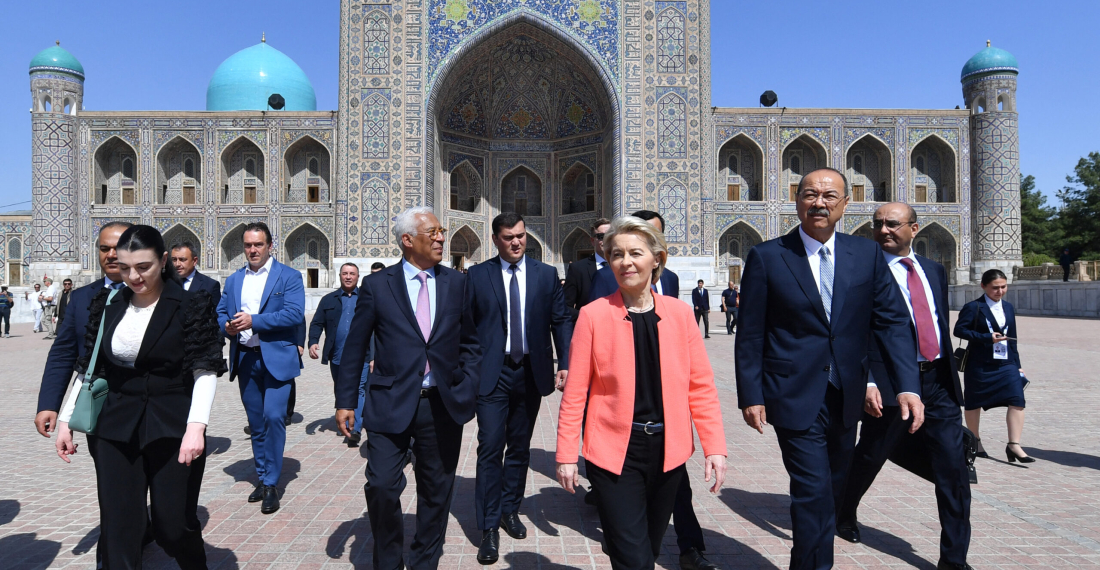European Commission President Ursula von der Leyen and European Council President António Costa travelled to Uzbekistan to participate in a landmark EU–Central Asia summit. Held on 3–4 April, the event brings together EU leaders with the heads of state and government of the five Central Asian republics. Alongsidei the host, Uzbek President Shavkat Mirziyoyev, the summit was also attended by Kazakh President Kassym-Jomart Tokayev, Kyrgyz President Sadyr Japarov, Tajik President Emomali Rahmon, and Turkmen President Serdar Berdimuhamedov.
According to the official communiqué issued by the European Council, the summit offered a key opportunity for the EU to reaffirm its geopolitical interest in strengthening bilateral relations and enhancing regional cooperationwith Central Asia. During the summit, the EU affirmed its commitment to scale up cooperation in areas of mutual interest, which include transport and digital connectivity in the region and with the EU, critical raw materials, economic and security cooperation, and the energy transition.
Ties between the EU and the former Soviet republics of central Asia have intensified since Russia’s full-scale invasion of Ukraine in February 2022. The two sides have pledged to improve transport links, through a project known as the trans-Caspian transport corridor, which aims to cut the overland journey between the EU and central Asia by half, down to no more than 15 days. Brussels has also been pushing for a text on critical raw materials that are abundant in the region and needed for the EU’s green transition.
One senior EU official said it was “a landmark summit” and that central Asian countries showed “a corresponding wish to deepen the relationship with the EU and to diversify their foreign policy”.
There is growing consensus among academics and regional experts that Central Asia is poised to play a far more significant role in global trade and international affairs in the coming years than it does today. According to recent projections by the European Bank for Reconstruction and Development (EBRD), the region’s economy is expected to grow by 5.7 per cent in 2025, outpacing China.
Since gaining independence in the early 1990s, the post-Soviet republics of Central Asia have achieved steady economic, political, and social progress, particularly Uzbekistan and Kazakhstan, the region’s two leading states. Both have pursued comprehensive reforms, transitioning from centrally planned economies to export-oriented market economies, while maintaining strong state influence in strategic sectors such as energy and natural resources.
Strategically located along the ancient Silk Road, Central Asia serves as a key land bridge between Asia and Europe. In overland trade, the region is indispensable to connectivity between China and the European continent, as several recently launched transport corridor projects illustrate. The region also shares a border with Afghanistan, making it critical for efforts to combat illegal migration, drug trafficking, and smuggling.
Central Asia is also rich in natural and energy resources. Kazakhstan and Uzbekistan are among the world’s top uranium producers, Kazakhstan leads the list and holds the second-largest uranium reserves globally. The five republics also boast vast reserves of oil, natural gas, critical minerals and rare earth elements, resources often described as ‘the oil of the future’.






